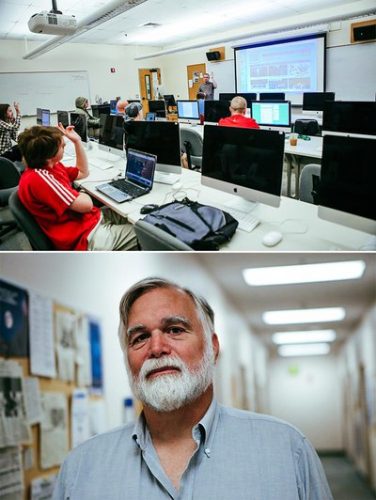
Even at 5 years old, LCC alumnus Coral Breding expressed an interest in art. When he realized he could use his art skills and 3D animation software to create art for video games, he was hooked.
Each spring, dozens of students like Breding graduate from LCC with a two-year degree in game development. Jim Bailey, an LCC computer information technology instructor, felt there was a need for an educational curriculum that targeted the needs of the local gaming community. Using a grant from the Lane County Economic Development Commission, Bailey created a new degree program for the school in 2005.
Bailey determined what courses to include in the program after consulting with professionals at local companies like Buzz Monkey (now Zynga), Pipeworks and GarageGames. Many of his students have gone on to work for these same businesses upon completing LCC’s program.
“It’s like a foundational program, for me,” Breding says. “It covers everything and explains how the game industry works.”
The program requires the same computer science sequence to become a junior at any four-year school. Introductory computer science courses can have to up 120 students enrolled in a year, but the second year caters to gaming students, offering courses in game development and animation that have only 20 to 25 people enrolled.
“Right now, I’m comfortable with the idea of 15 to 20 students graduating,” Bailey tells EW. “I don’t want to start graduating 40 people per year, because they wouldn’t be able to get jobs.”
Second-year students participate in a six-month team project and are given the opportunity to create their own game. The first three months are devoted to conceptualizing the project, and the next are for coding and testing. When finished, students present their games to members of the Eugene gaming community. This provides students with feedback and an introduction to the local industry.
LCC students have also gained real-world experience at local game jams, where participants are given 24 to 48 hours to complete a game. Bailey’s students have placed as finalists in recent competitions. And during the upcoming downtown Indie Game Convention on Oct. 3-4, Bailey expects many of the games to have been created by his students.
“I want to see the local industry grow. If we can get the local industry to grow, then that’s good for Eugene and for my students,” Bailey says.
This story is a follow-up to last week’s cover story on the game development industry in Eugene.